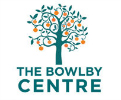The role and guidelines of the UKCP
The Bowlby Centre is a member of the United Kingdom Council for Psychotherapy (UKCP) which produced the first register of psychotherapists in 1993. The UKCP is the validating body that registers those who are competent to practice as psychotherapists in the United Kingdom. It is made up of individuals and organisations which train psychotherapists and which provide clinical and/or educational services.
What this means for the public is that there is an ethical code and a complaints procedure whereby any client or patient can make an appeal about an alleged malpractice. A therapist or training organisation can be struck off this register if unethical behaviour is proven. At present this is a voluntary register.
The Member Organisations are grouped into sections based on broad categories of approach referred to as “modalities”. The main sections include Analytical Psychology-Psychoanalytic and Psychodynamic, Humanistic and Integrative Psychotherapy, and a number of groupings such as Child Psychotherapy and Behavioural Psychotherapy. The Bowlby Centre became a member of the Analytical Psychology- Psychoanalytic and Psychodynamic Section of the UKCP in 1991. This section is now known as the Council for Psychoanalysis and Jungian Analysis (CPJA). Our training is approved by the UKCP and our Registered Attachment-based Psychoanalytic Psychotherapists (RAPPs) are put forward on to its Register. We have delegates representing The Bowlby Centre at UKCP meetings. Training standards and ethical codes of practice are emerging which we can influence and which will create criteria to which we have to conform in order to remain within the UKCP. The flag statement of the section of which The Bowlby Centre is part, reads:
Analytic psychotherapy is based on psychoanalytic practice and theory. It endeavours to reach the underlying; often unconscious, cause of distress. Together with the therapist, the patient can explore free associations, memories, phantasies, feelings and dreams relating to both past and present. In the reliable setting of the therapy and in the exploration of the interactions with the therapist, especially within the transference and counter-transference, the patient may achieve a new and better resolution to long standing conflicts.
